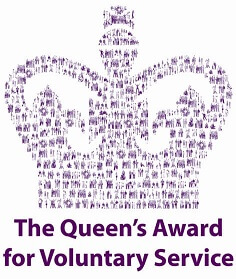Resources
Fact sheets & FAQs
The Skylarks SEND Advice Service has some free Fact Sheets and FAQs on key topics. These are being updated and added to regularly:
Factsheet: EHC need assessment guides you through the process involved with an EHC Needs Assessment, which is the first stage in obtaining an Education, Health and Care plan (EHCP).
Fact sheet: Special education provision provides information on what educational settings should be doing to identify and meet the needs of children or young people with Special Educational Needs and disabilities (SEND).
Fact Sheet: How to check an EHCP is a detailed guide on what should be in an EHCP and how to carry out a check of an EHCP to ensure it is correct. You will be asked to check a draft EHCP , either when you first receive the original EHCP and then anytime amendments are made following a subsequent review. But, you may also want to carry out a check of a current EHCP to help identify any amendments at the next review. The ability to check an EHCP and understand what should be in the EHCP is therefore a useful skill to have.
FAQ: Reviews of EHCPs gives information on when a review should be carrie out, how to prepare for the review and what you need to know to request changes to an EHCP, the process that should be followed and what to do if you don't agree with the decision made.
Useful links
Please find below links to other websites which are of use:
Section A of the EHCP
This link is a very useful guide for parents on how to write section A (parent/childs views) of the EHCP.
Schools & Colleges
Finding a school can be very difficult, we can provide general advice and can sometimes point you in the right direction, but we do not offer a 'school finding service'. We would recommend starting with these websites;
This is a useful government website which allows you to search a specific distance and filter on particular areas of need.
This is the Which Special Needs guide which has a helpful search function to find schools.
This website from Special needs UK has a very helpful search facility to find schools according to the area of need and location.
This is a facility to search for independent schools that have at least one child with SEND from the Independent Schools Council .
This is a website from Natspec detailing Special Further education colleges for 16-25 year olds.
This website by 'Created by parents' has a list of specialist residential colleges they suggest.
Experts
You may decide to commission your own experts to obtain further advice or perhaps to acquire evidence if you are going to appeal to the SEND First Tier Tribunal. If you are going to appeal it is important to check the experts concerned has experience in writing reports suitable for EHCPs and they are willing to give evidence at the tribunal if required. The link below has a list of such experts.
This is a link to a charity called 'Parents in need' who assist parents with obtaining private expert reports. There is also a very useful link to a list of professionals who write reports suitable for EHCP's and are able to give evidence at the SEND First Tier Tribunal should you require it.
Personal budgets
You are entitled to request a budget for the education, social and health care provision in an EHCP, and if the LA agrees to the request, the personal budget can be used to fund some provision in the EHCP. These links provide further information:
This is the link to an information sheet about personal budgets on the 'Contact' website.
This is a link to the 'Child Law Advice' website which has information about Direct Payments.
This is the link to the 'Council for Disabled Children' website about personal budgets for those over the age of 16 years.
Appeals to the SEND First Tier Tribunal
You can appeal to the SEND First Tier Tribunal if the Local Authority (LA) refuses to carry out an EHC needs assessment, refuses to issue an EHCP or if you disagree with the contents of the plan or a decision made after reviewing the EHCP. There are specific deadlines to lodge the appeal, the process is free and parents can apply themselves or request support from charities offering this service, or an advocate or solicitor (privately funded or via legal aid if eligible). Unfortunately Skylarks are limited in what support we can offer for appeals as they take up a great deal of our resources, but you can get help from the following:
This is a link to the SEND First Tier Tribunal website where you will need to lodge any appeal.
This link from the charity IPSEA is helpful in explaining the steps involved with an appeal If you decide to appeal yourself (without help from a professional or charity).
IPSEA also has a tribunal support service run by trained volunteers who may be able to assist you with an appeal.
SOS!SEN are also another charity who provide some support for appeals.
SEN Help have a very useful website explaining what you need to consider for each type of appeal.
This is the link to use if you want to check if you may be eligible for legal aid which will mean you may be able to get assistance from a solicitor with your appeal.
Click on this link and scroll down to the 'Education' section for contact details for law firms who provide legal aid for SEND First Tier Tribunal appeal cases.
Refusal to assess - IPSEA have created an information pack which you can find here
Social care
The Local Authority should obtain information and advice from 'Social care' during the EHC Needs Assessment process. These links provide more information on what that may consist of and the support you might be able to access:
This is a link Contact' about your rights to social care for families with a disabled child.
This is a link on what should happen when a child transitions to adult social care services in the lead up to turning 18 years of age.
This link is about support available for carers (adults who care for children or young people with SEND or child carers.)
Preparing for adulthood (PFA)
All young people from year 9 onwards should have the 'PFA' outcomes included in their EHCP. These links provide more information:
This is a link on 'Preparing for adulthood' which should be considered at each annual review of an EHCP from year 9 onwards.
This link explains what support for education should be available after the age of 16 years of age.
Transport
SENTAS give information on home to school transport
You can also find Myth Busters and School Transport Guides on the Cerebra website
ABA Therapy
Applied Behavioural Therapy is sometimes included in EHCPs. These links provide further information:
ABA 4 All - A very useful website about ABA Therapy.
A list of schools from the website 'ABA 4 All' of settings able to offer ABA Therapy.
This is a link to the 'Giving Tree Foundation' which has information about ABA Therapy as well as a bursary for children aged 3-5 years to assist with accessing ABA Therapy.
Mental capacity/Deputyships/Power of Attorney
It may be that you need to make decisions on somebody else's behalf in relation to their personal affairs or finances. These links are very useful in explaining what needs to be considered and the options available :
This is a link to Mencap's resource pack about Mental capacity and their fact sheet on Deputyships/powers of attorney.
Difficulty attending school
Skylarks regularly speak to families who have children or young people having difficulty attending school for a variety of reasons.
This link is to the very helpful website 'Not Fine in school' which supports families who for whatever reason have a child unable to attend school
Elective Home Educations (EHE) & Education Other than a Setting (EOTAS)
The duty on the Local Authority is very different if you have 'chosen' to home educate, rather than it being agreed with the LA that to go to school would be 'unsuitable', in which case it may be considered that 'EOTAS' should be included in the EHCP. Please refer to these links for more information:
This is a useful link about Elective home education which answers some of the common questions.
A useful article from 'Special Needs Jungle' which explains the difference between Education Other than a Setting (EOTAS0 and Elective home education (EHE).
Resources from Cerebra charity
Having to be your child’s voice when you don’t know what questions to askAdele and Claire from Enable Law explain a typical journey a client may take when seeking legal advice.
Can an Education, Health and Care Plan (EHCP) help my child after a brain injury?Leanne Tattam, Partner at Birchall Blackburn Law, explains why an EHCP is so important and how incredibly helpful it can be.
Transitioning from School to Further EducationLisa Swales, Partner at Pryers Solicitors LLP talks us through the available options when moving from a school setting into further education.
Early therapeutic intervention for acquired brain injuryClaudia Hillemand from Bolt Burdon Kemp talks us through how parents can seek therapy and equipment at the earliest possible stage, after learning their child has suffered a brain injury.
Assistive Technology – enhancing independence for children living with brain conditionsLaura Cook, Partner at CL Medilaw, and Mike Thrussell, Director at Access:Technology, discuss the uses and benefits of assistive technology for children living with disabilities, and how it can be accessed.
Resources from South-West London Law Centres
Education clinic
South West London Law Centre's advisors can help with:
- Special Educational Needs including advice on Education, Health and Care Plans, First-tier Tribunal appeals, and enforceability of provision
- Children out of school for reasons of illness, exclusion or otherwise – basic rights and entitlements
- School admissions for children without EHC plans
- School exclusions
- Disability discrimination in schools (including independents)
SWLLC can provide 30 minutes’ free initial advice to help you understand your rights and the steps you can take next. You’ll be advised by lawyers who volunteer their time to help people in our local community.
Please note that this is a new service with the first appointments taking place on 17 October. Appointments are booked in advance so to enquire about this service, please get in touch using our contact form if you can.
Alternatively you can phone us on 020 8767 2777. Please note that our phone lines are very busy at the moment, and you may find it quicker to use our contact form if possible.


